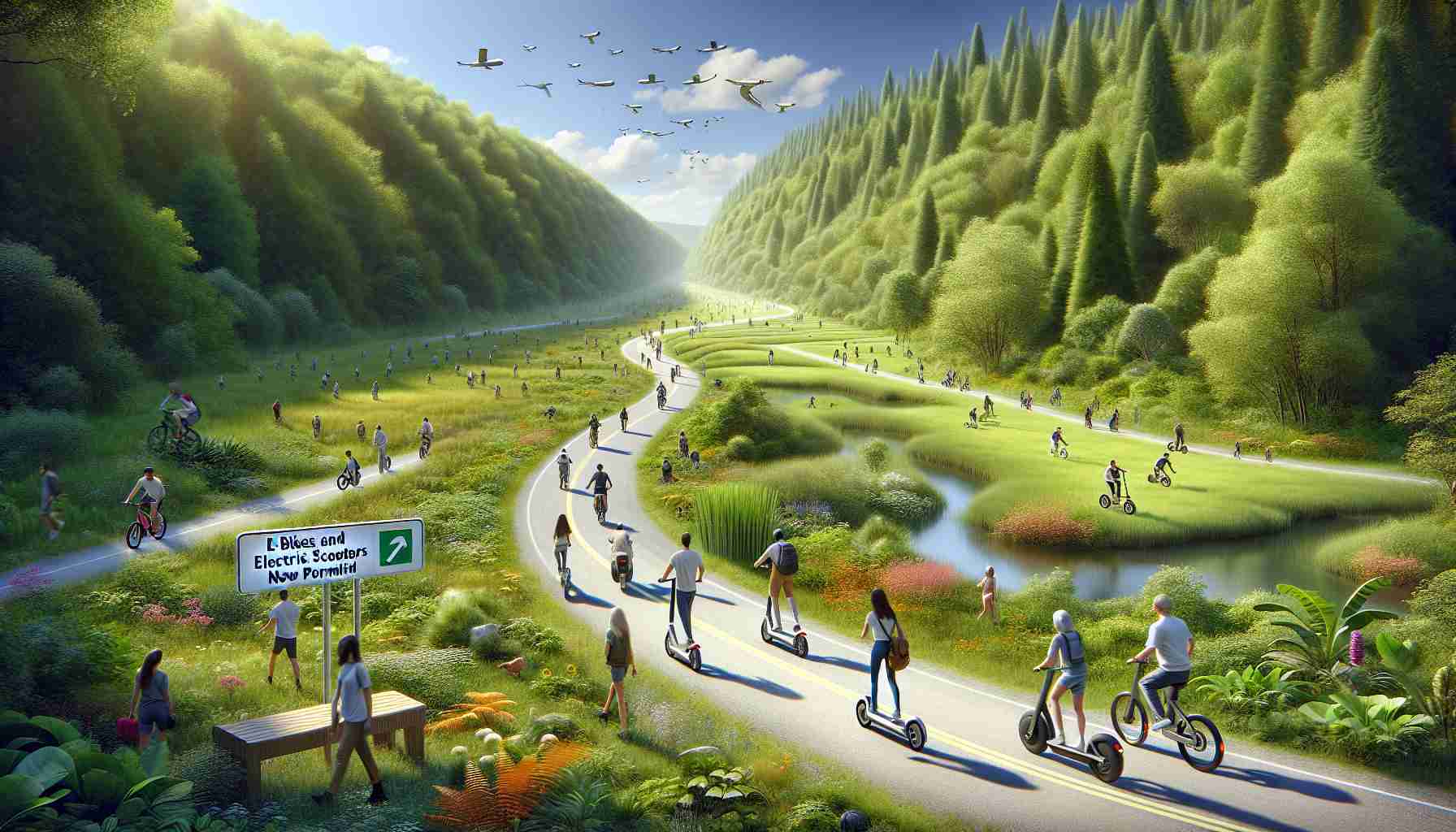In an exciting turn of events, the King County Council has officially legalized the use of Class 1 and 2 e-bikes and electric scooters on the county’s trails. This recent change, part of a comprehensive revision of King County Parks rules, comes as a welcome surprise to many trail enthusiasts who had no idea that these eco-friendly modes of transportation were previously prohibited.
The expanded regulations not only allow for the use of e-bikes and electric scooters but also redefine a “micromobility device” to encompass various small, lightweight electric vehicles designed for personal transport. These devices, including electric-assisted bicycles, motorized foot scooters, and electric skateboards, are no longer classified as motor vehicles. As a result, individuals can now ride e-bikes and scooters on many trails that explicitly forbid motorized vehicles, unless otherwise specified by signage.
Interestingly, the King County Council has made a unique exception to the standard 15 mph speed limit rule for mountain biking. Instead of a specific speed restriction, mountain bikers must now travel at a speed that is reasonable and prudent based on the prevailing conditions and potential hazards. This shift in approach recognizes the importance of promoting responsible behavior rather than relying solely on arbitrary speed limits.
While this update is certainly a step in the right direction, there are further discussions surrounding trail access and hours of operation. Regional trails in King County currently close at sundown, a rule that is rarely enforced or followed. To address this issue, an ordinance has been passed mandating a feasibility assessment to explore the extension of trail hours. This assessment will also consider the significance of trails as essential transportation links.
Another aspect worth reconsidering is how trail rules are governed across multiple jurisdictions. Similar to roads, trails connect various areas and should ideally have consistent regulations that transcend borders. Engaging in a collaborative effort to establish uniform guidelines for an entire trail network could alleviate confusion and ensure a seamless experience for trail users.
As we celebrate this remarkable milestone in King County, it’s important to note that certain federal regulations still prohibit the use of electric scooters on trails funded by federal grants. However, e-bikes continue to be permitted in these areas. Efforts are underway to update these rules, which may soon lead to the inclusion of electric scooters on previously restricted trails.
In conclusion, this legalization marks a significant step forward for sustainable transportation options on King County trails. With e-bikes and electric scooters now embraced, individuals can explore the beauty of these trails while promoting cleaner and greener forms of travel. Let us embrace this newfound freedom responsibly and continue to advocate for accessible and inclusive trail experiences for all.
The legalization of e-bikes and electric scooters on King County trails is part of a larger industry trend towards increased adoption of electric micromobility devices. The electric micromobility market has been growing rapidly in recent years, driven by factors such as a desire for eco-friendly transportation options, advancements in battery technology, and increasing urbanization.
Market forecasts indicate that the global electric scooters market is expected to reach a value of $42.3 billion by 2027, with a compound annual growth rate (CAGR) of 8.5% from 2020 to 2027. This growth is attributed to factors such as the increasing demand for short-distance transportation solutions, rising fuel prices, and government initiatives promoting sustainable transportation.
The e-bike market has also been experiencing significant growth, with a projected CAGR of 6.1% from 2020 to 2027. Factors driving this growth include increasing health consciousness, rising traffic congestion in urban areas, and advancements in battery technology that have improved the range and performance of e-bikes.
While the legalization of e-bikes and electric scooters on King County trails is a positive development, there are still several issues and challenges that need to be addressed. One such issue is the need for clear signage and communication to inform trail users about the specific regulations and restrictions for different types of devices on different trails.
Another issue is the need for infrastructure investment to accommodate the increased use of electric micromobility devices. This includes the installation of charging stations for e-bikes and electric scooters, as well as improvements to the overall trail infrastructure to ensure a safe and enjoyable experience for all users.
Additionally, there are ongoing discussions about the enforcement of trail rules, particularly regarding speed limits and hours of operation. These discussions involve considerations of safety, environmental impact, and the needs of different user groups, such as pedestrians, cyclists, and equestrians.
To address these issues, collaborative efforts among various stakeholders, including government agencies, trail advocacy groups, and manufacturers, are necessary. By working together, they can develop comprehensive guidelines and regulations that balance the needs of different users and ensure the long-term sustainability of trail networks.
Overall, the legalization of e-bikes and electric scooters on King County trails reflects a broader shift towards embracing sustainable transportation options. As the industry continues to evolve and regulations are updated, it is crucial to prioritize safety, accessibility, and environmental sustainability in order to create inclusive and enjoyable trail experiences for all users.
Links:
– Global Electric Scooters Market Forecast
– Global E-bike Market Analysis







